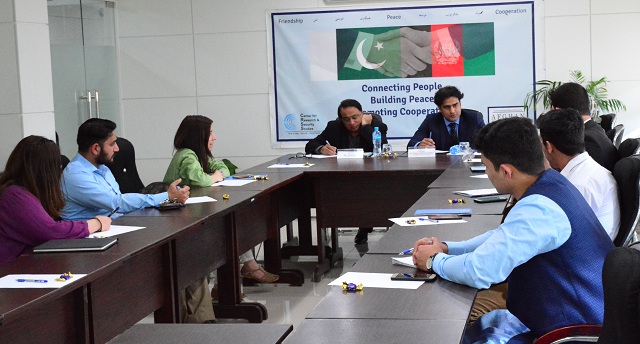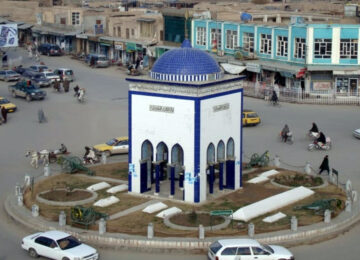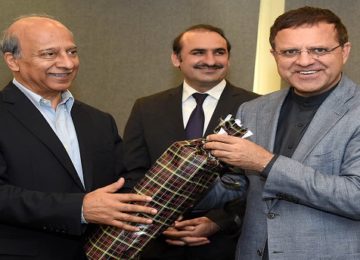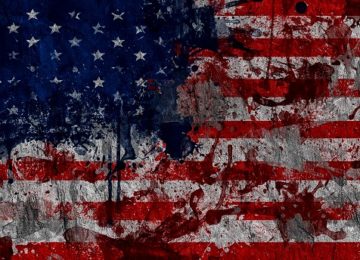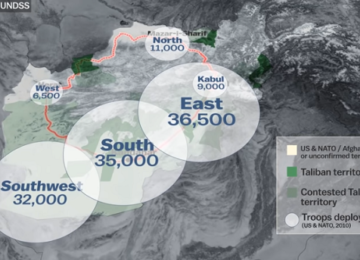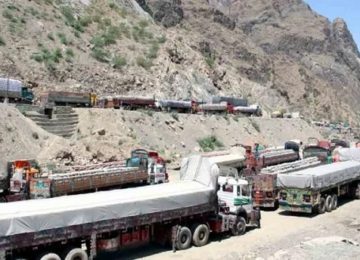March 29, 2019.
Elements of language, clothing, food, music, weather, nationality, geography, values, politics, and rituals make the DNA of the ‘strategic culture’ of any nation. Pakistan and Afghanistan, two bordering neighbors, not only share most of these traits but also religion. This case of shared commonalities between the two sets the utmost bedrock for the burgeoning of peace, prosperity and harmony between the two, according to Dr. Tauqeer Hussain Sargana, who was speaking to youth from Pakistan and Afghanistan at Afghan Studies Center’s 22nd Pak-Afghan Youth Dialogue. He was speaking on the theme, “How Can Cultural Diversity build peace and prosperity between Pakistan and Afghanistan?”
In other words, the commonality of variables provides the convenience of interaction by setting a conducive environment posed by these factors. In case of the absence of cultural harmony, nations are prone to a ‘cultural clash,’ which is not the case for Pakistan and Afghanistan, he said. Naming these commonalities, Dr. Sargana gave the example of Pashto as a language spoken in both countries. In Afghanistan, Pashtun comprise around 40% of its population which makes it the largest ethnic group. On the other hand, Pashto is spoken by 26 million people in Pakistan and is the second largest ethnic group. Karachi is home to the largest concentration of urban Pashto population in the world, including more than 50,000 registered Afghan refugees in the city that found asylum in Pakistan during the 1980’s Soviet Invasion of Afghanistan. Additionally, around 4 to 5 million Afghan Pashtuns and Tajiks along with few other ethnic groups have also been residing in Pakistan, which has resulted in the adoption of their culture in the Pakistani society and vice versa.
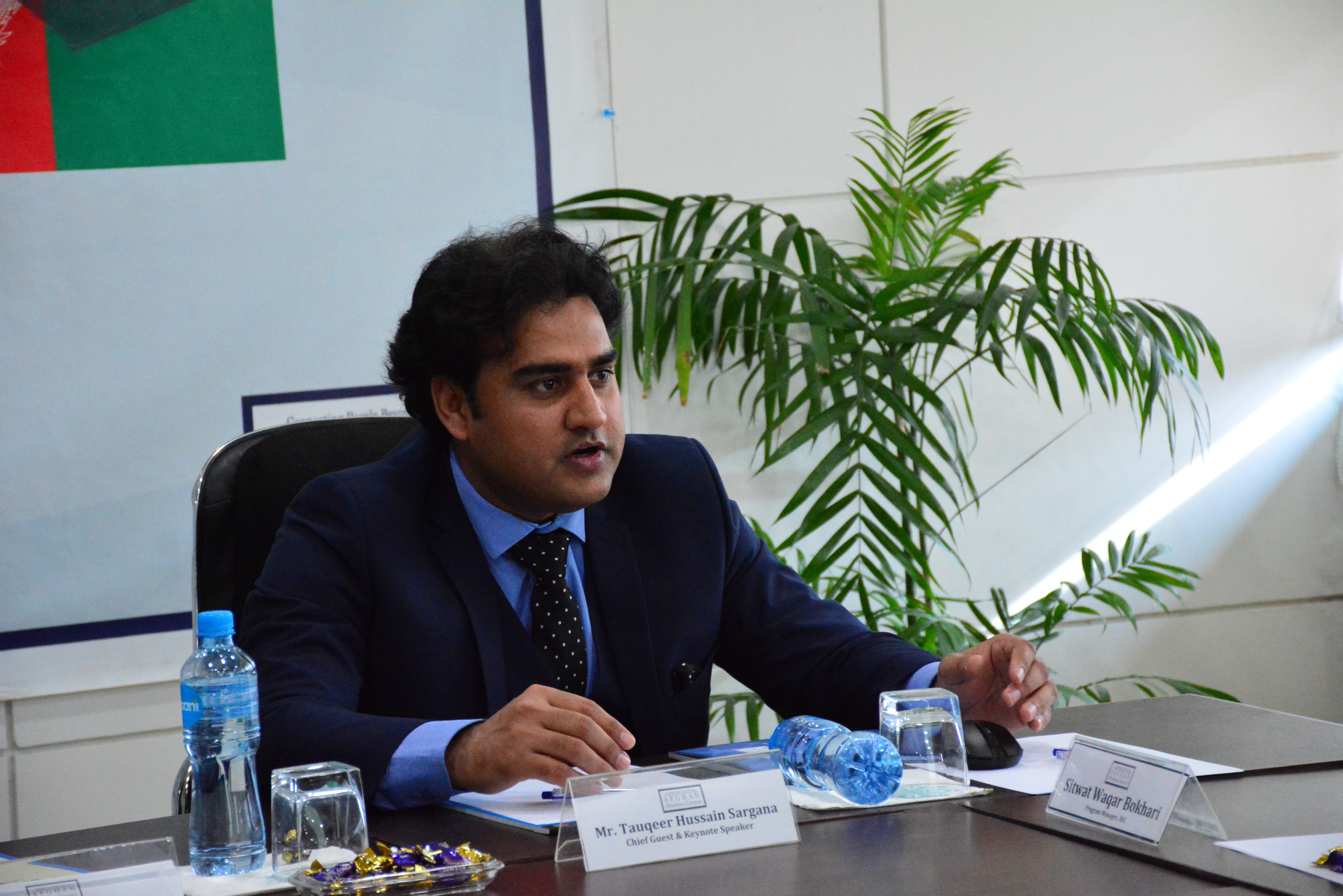
Elaborating on other cultural aspects, Dr. Sargana stated that Shalwar Kameez is also a common dress code that is seen across the border. Moreover, since the influx of the Afghan refugees in 1979, Afghan cuisine has gained a big market in Pakistan. There are hundreds of famous Afghani restaurants operating in all major cities of Pakistan while the number of Afghani dishes widely enjoyed by Pakistanis include lamb kebab, Afghani kebab, lamb chops, ribs, Kabuli pulao, kofta, mantu and shorma.
Talking about music, he stated that Pakistani music along with Pashtu, Tajik and Hazara songs are very popular on both sides of the border. Whether it is classic, pop or hip hop music; Pakistan and Afghanistan are cherishing the sounds and poetry of each other to build strings of melodies necessary to soften the irony of 21st century disorientation. Besides that, starting from the birth till the death of an individual, both Afghani and Pakistani nations follow the same rituals celebrate and mourn one’s life, he added.
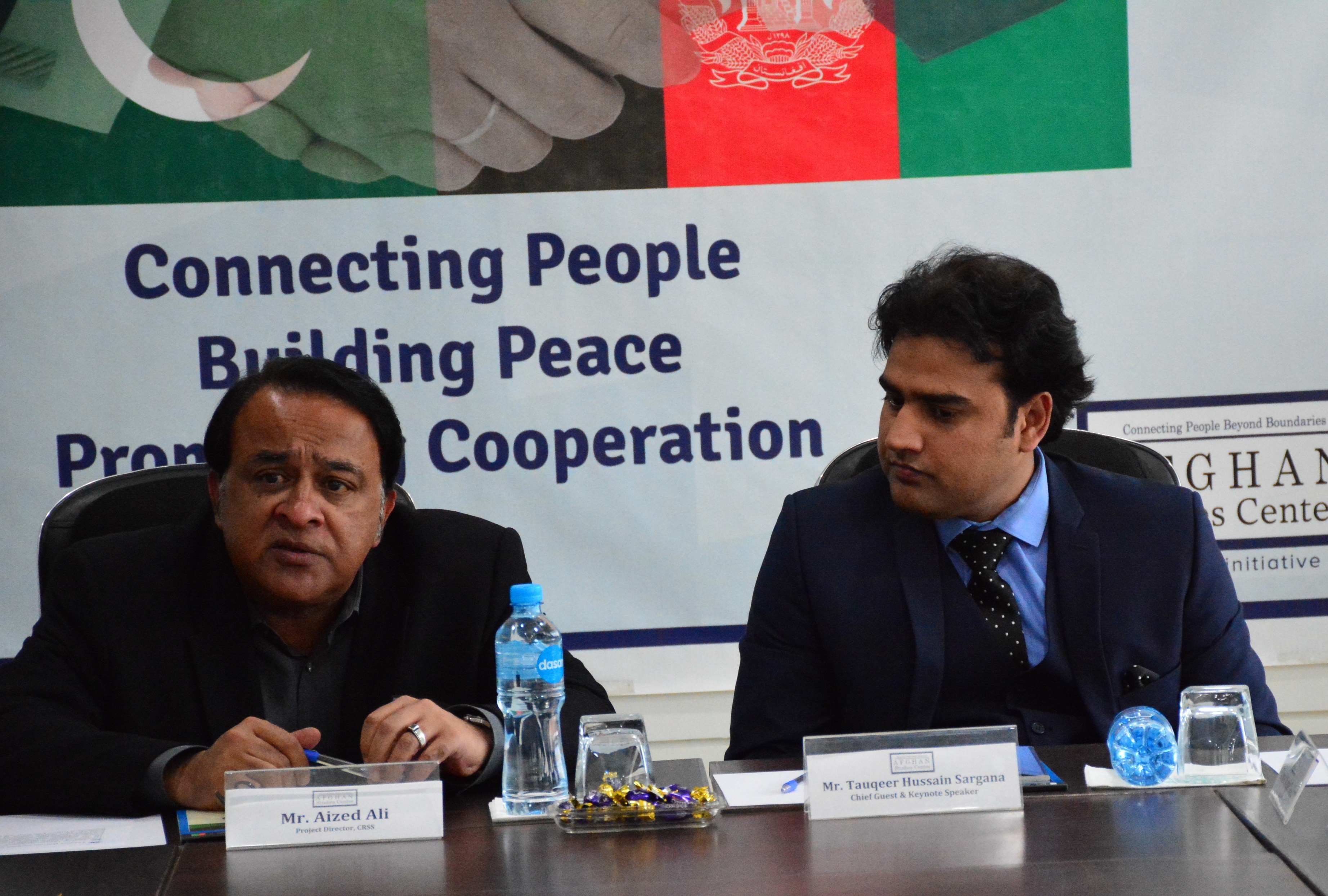
Dr. Sargana stated that the values of hospitality, protecting minorities, promoting peaceful co-existence of different ethnicities and minorities as well as respecting women are common to both countries. Moreover, many of the holidays are also nearly the same, including Islamic holidays such as Eid-al-Fitr, Eid-al-Adha, Ashura, and the birthday of the Prophet (PBUH). Nowroz, or the New Year, is also the most known and joyous time in Afghanistan, which is also celebrated in Pakistan.
Shedding light on the different instruments of hybrid warfare (non-kinetic) now being used by certain factions to hurdle the smoothening of relations between the two neighbors, Dr. Sargana concluded on the note “No hate, no fear. Afghanis are welcome here. No hate, no fear, Pakistanis are welcome there. We are one and we must get united against hybrid warfare.” At the end Dr. Sargana posed the question, “Do Afghanistan and Pakistan being two neighboring nations uphold the strategic identity of ‘cultural diversity’ or are they at verge of ‘cultural clash’?”
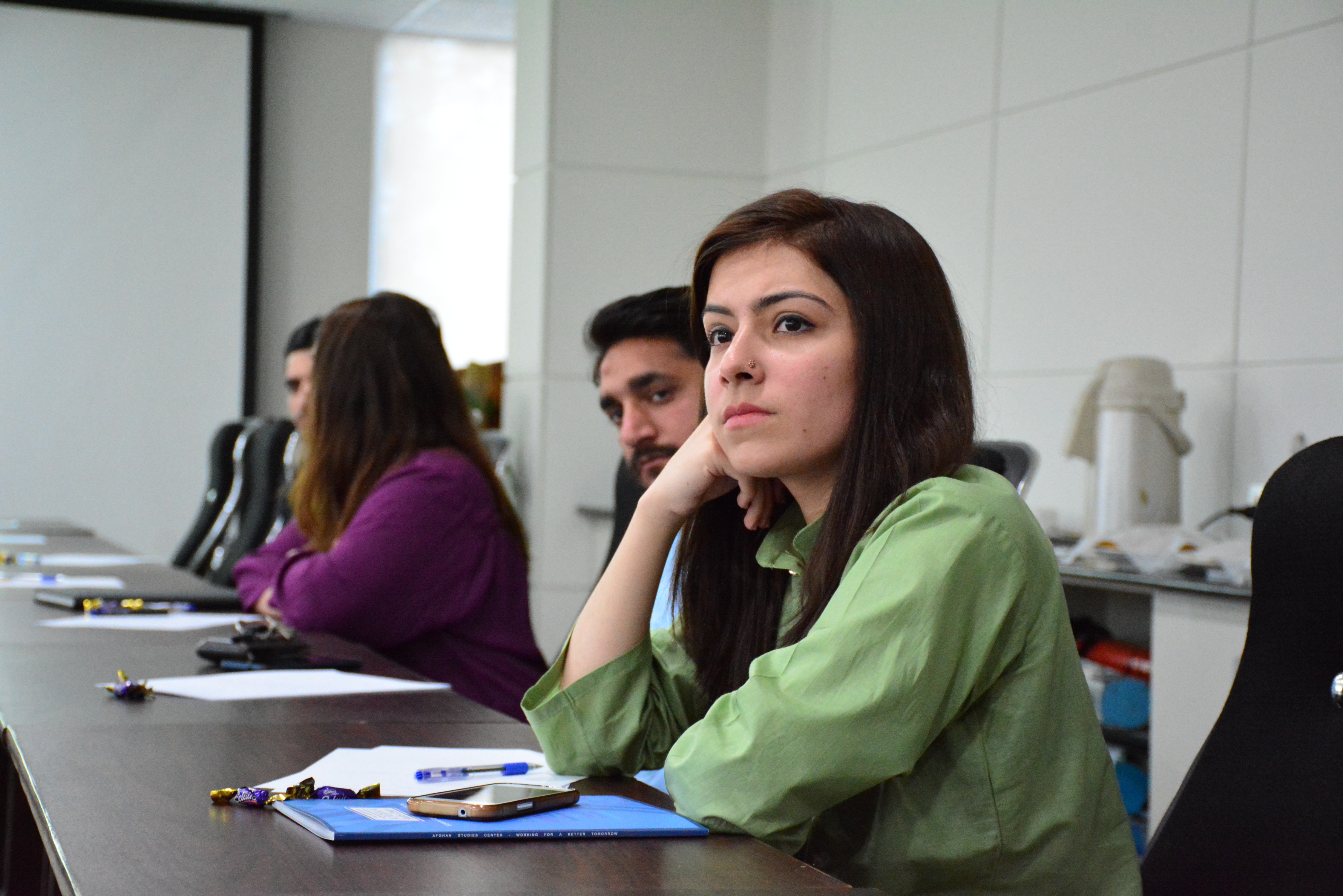
In the Q&A session, participants carried different viewpoints. Some were of the view that there was a cultural clash while others pointed out the commonalities and stated that the two countries had many things in common. They further posed several queries to the chief guest regarding the role of the Muslim Ummah while keeping religion as a commonality between the two countries as well as how cultural commonalities can be celebrated between the two countries to strengthen the people to people contact and the bilateral relation.
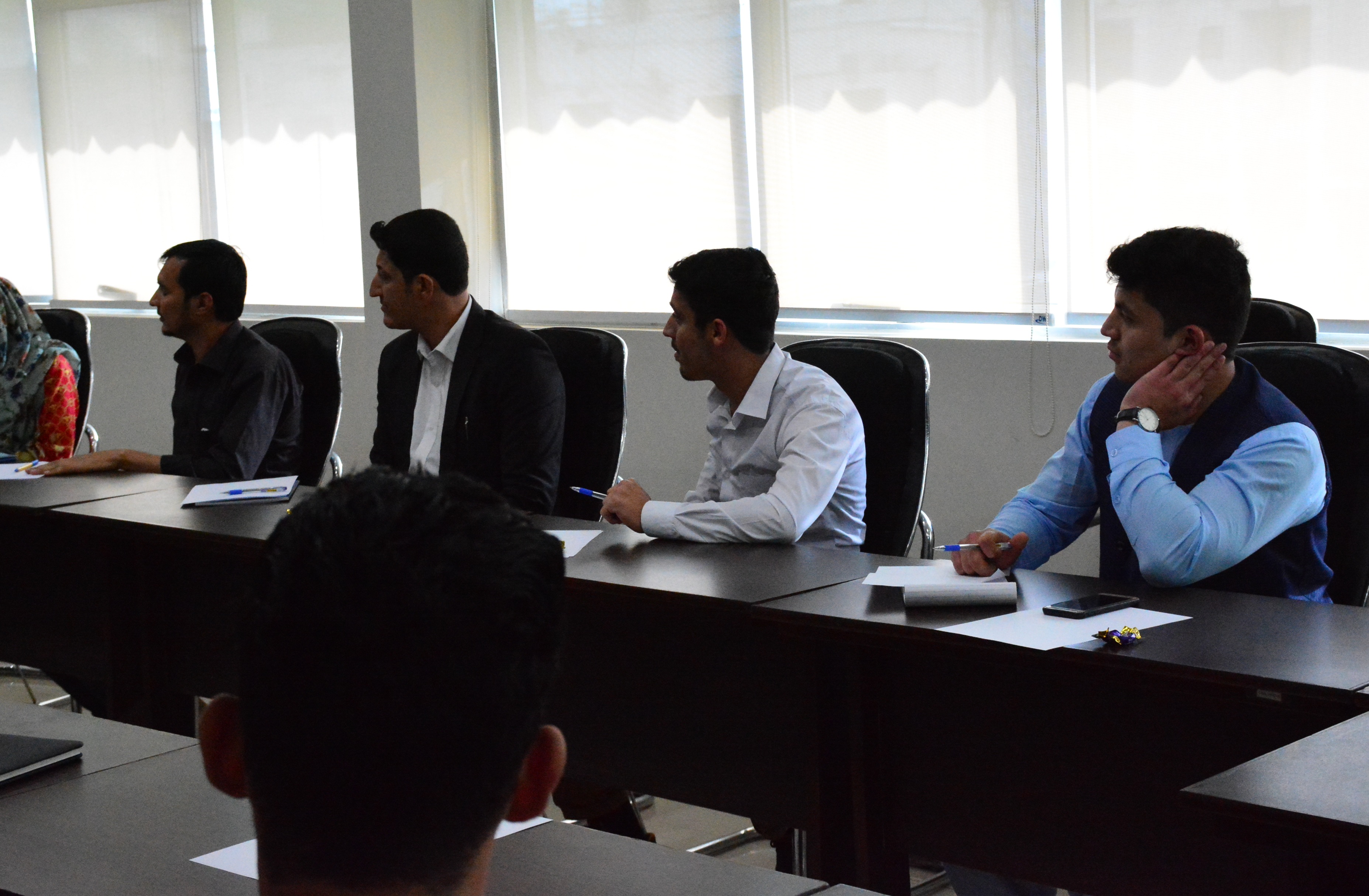
CRSS Project Director Mr. Aized Ali also apprised the participants about the ongoing CRSS Pak-Afghan Track 1.5/II Initiative ‘Beyond Boundaries’ which has so far convened 16 high level meetings between the two Pak-Afghan influencers’ groups, mainly in Kabul and Islamabad, but also in other major cities such as Karachi, Lahore, and Mazar-e-Sharif, to bridge the gulf of mistrust and improve bilateral relations between Pakistan and Afghanistan. He told the participants that the Afghan Studies Center is an off-shoot of the initiative, aimed to provide the youth of both countries a platform to inculcate critical, creative and out of box thinking and to dispassionately interact and exchange ideas as they emerge as future leaders and ambassadors of peace.
At the end, based on the participation of the participants, the ASC team nominated Khalid Rafique from Afghanistan, who had travelled from Peshawar just to attend the dialogue, as the Pak-Afghan Youth Ambassador for the month of March 2019. He was then presented a shield by the Chief Guest. Project Director Mr. Aized Ali also presented an honorary shield of appreciation to the Chief Guest, Dr. Tauqeer Hussain Sargana.
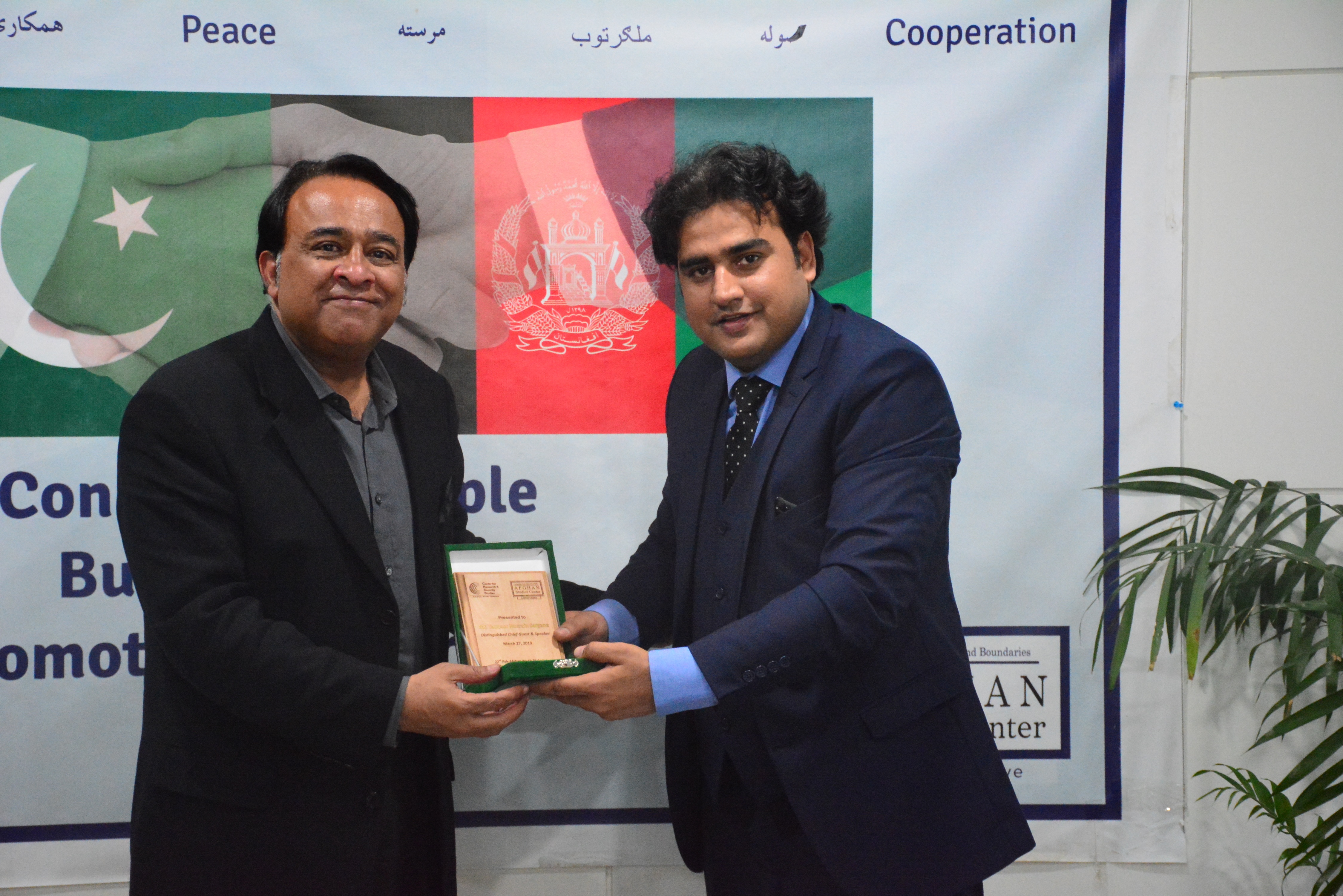
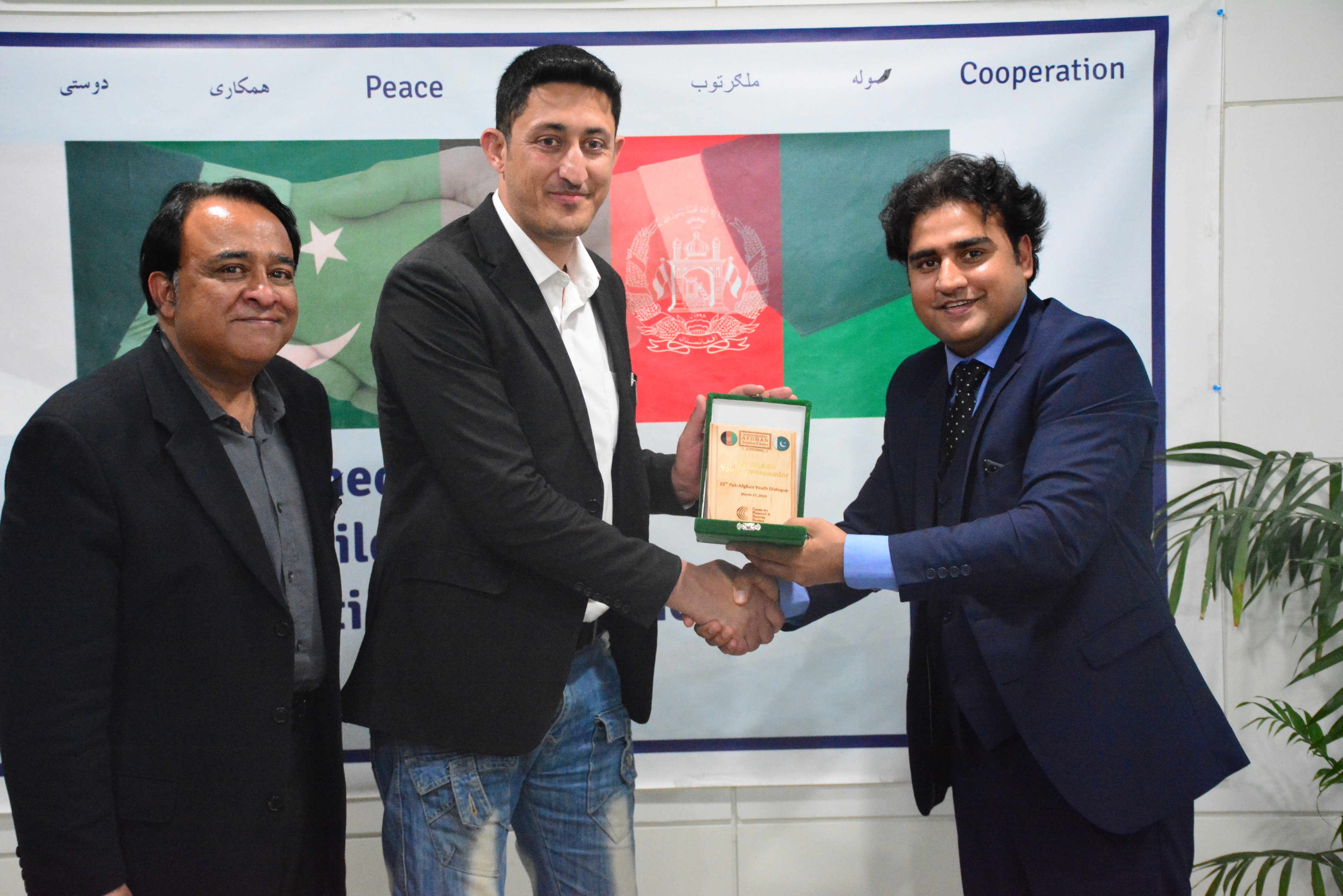
Thereafter, the 22nd Pak-Afghan youth dialogue came to a close followed by a group picture. The dialogue was held under the Afghan Studies Center initiative of CRSS which has now an alumni of over 500 Pakistani and Afghan youth. Afghan Studies Center aims at encouraging peace narratives and critical thinking through its monthly Pak-Afghan youth dialogue series, and its quarterly training workshops, which focus on the skill development and capacity building of emerging future leaders from both countries.
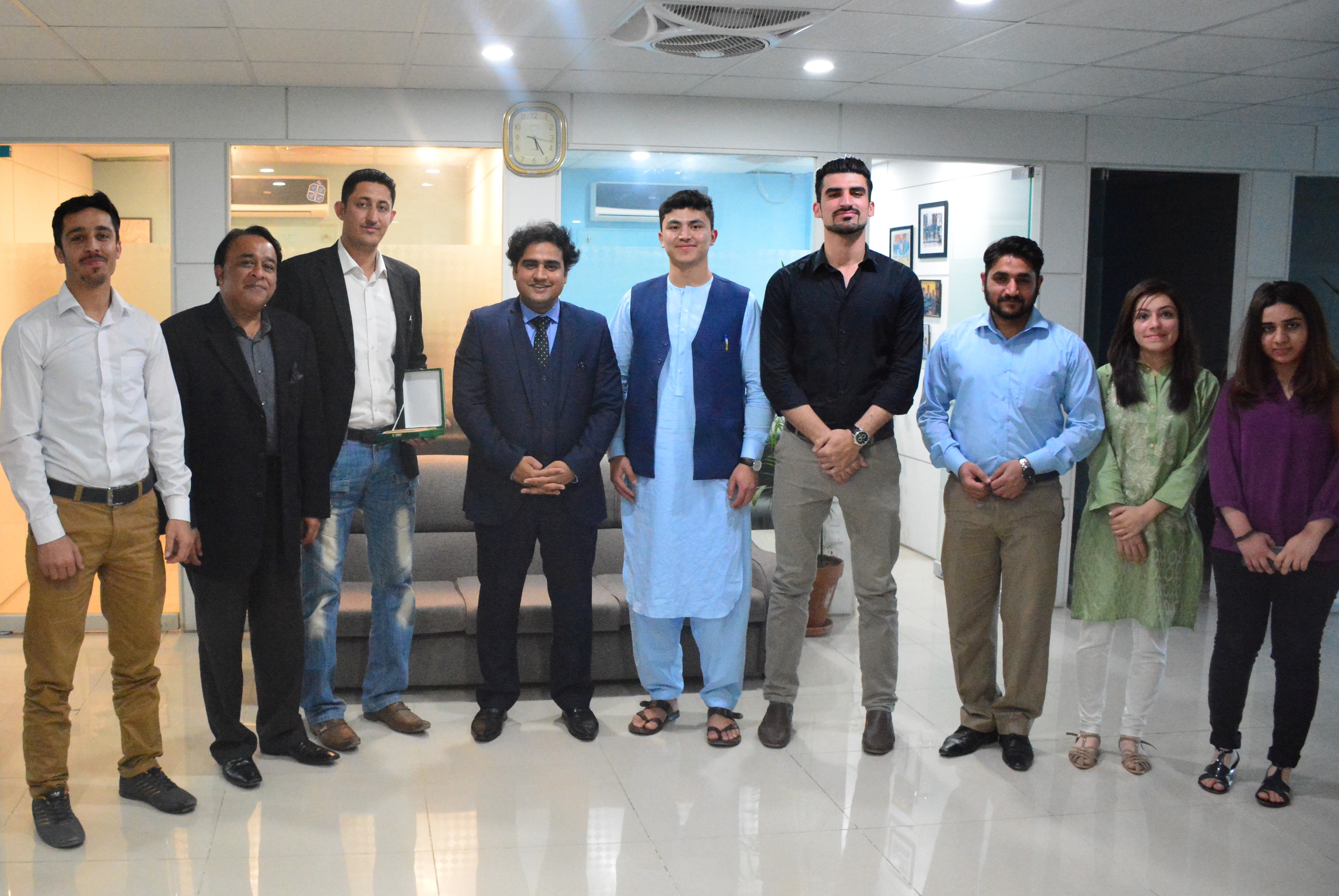
© Center for Research and Security Studies (CRSS) and Afghan Studies Center (ASC), Islamabad.



